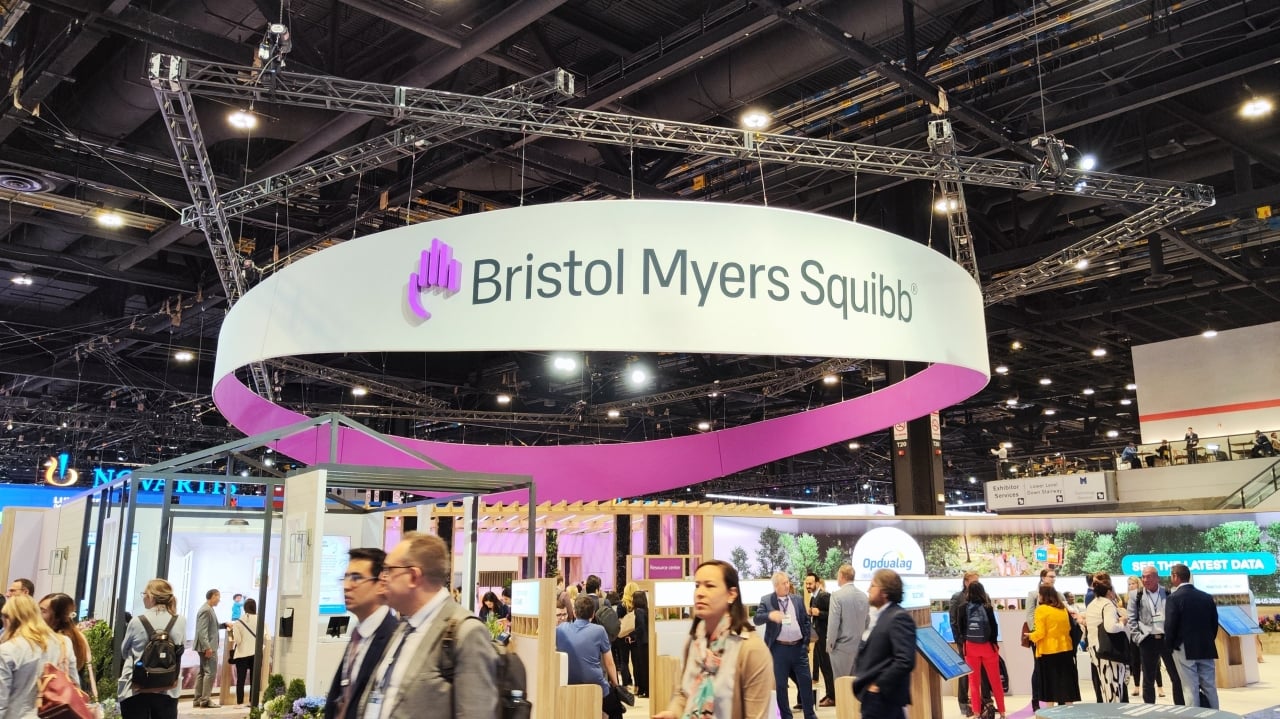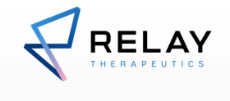预约演示
更新于:2025-05-07

Elevar Therapeutics, Inc.
更新于:2025-05-07
概览
标签
消化系统疾病
肿瘤
其他疾病
小分子化药
疾病领域得分
一眼洞穿机构专注的疾病领域
暂无数据
技术平台
公司药物应用最多的技术
暂无数据
靶点
公司最常开发的靶点
暂无数据
| 疾病领域 | 数量 |
|---|---|
| 肿瘤 | 1 |
| 排名前五的药物类型 | 数量 |
|---|---|
| 小分子化药 | 1 |
| 排名前五的靶点 | 数量 |
|---|---|
| FGFR2(成纤维细胞生长因子受体-2) | 1 |
关联
4
项与 Elevar Therapeutics, Inc. 相关的药物靶点 |
作用机制 PD-1抑制剂 [+2] |
在研机构 |
原研机构 |
最高研发阶段批准上市 |
首次获批国家/地区 中国 |
首次获批日期2019-05-29 |
靶点 |
作用机制 VEGFR2拮抗剂 |
在研机构 |
在研适应症 |
最高研发阶段批准上市 |
首次获批国家/地区 中国 |
首次获批日期2014-10-17 |
靶点 |
作用机制 FGFR2拮抗剂 |
非在研适应症- |
最高研发阶段临床1/2期 |
首次获批国家/地区- |
首次获批日期- |
10
项与 Elevar Therapeutics, Inc. 相关的临床试验NCT06308575
A Phase II Study of Rivoceranib for Patients With Recurrent or Metastatic Olfactory Neuroblastoma
To learn if rivoceranib can help to control olfactory neuroblastoma. The safety of this drug in participants with olfactory neuroblastoma will also be studied.
开始日期2024-11-01 |
申办/合作机构 |
ISRCTN27020581
A Phase I, open-label, single-dose study designed to assess the absorption, distribution, metabolism and excretion of [14C]-RLY-4008 in healthy male participants
开始日期2022-07-12 |
申办/合作机构 |
NCT05287360
A Phase 1, Randomized, Open-label, Single-dose, Crossover Study to Evaluate the Bioequivalence of Four Formulations of Oral Rivoceranib Tablets in Healthy Subjects
The main purpose of this trial is to compare a single dose of 4 different rivoceranib tablets in healthy adult participants.
开始日期2021-12-30 |
申办/合作机构 |
100 项与 Elevar Therapeutics, Inc. 相关的临床结果
登录后查看更多信息
0 项与 Elevar Therapeutics, Inc. 相关的专利(医药)
登录后查看更多信息
4
项与 Elevar Therapeutics, Inc. 相关的文献(医药)2024-03-01·Gastric Cancer
Rivoceranib, a VEGFR-2 inhibitor, monotherapy in previously treated patients with advanced or metastatic gastric or gastroesophageal junction cancer (ANGEL study): an international, randomized, placebo-controlled, phase 3 trial
Article
作者: Chau, Ian ; McGinn, Arlo ; Schenker, Michael ; Kang, Yoon-Koo ; Kim, Jong Gwang ; Evesque, Ludovic ; Wyrwicz, Lucjan ; Zhao, Yufan ; Lee, Keun-Wook ; Lee, Jennifer ; Kryzhanivska, Anna ; Takashima, Atsuo ; Yoon, Harry ; Boku, Narikazu ; Oh, Sang Chul ; Di Bartolomeo, Maria ; Ryu, Min-Hee ; Chao, Yee
2023-06-01·Journal of Clinical Oncology
Updated results from a phase 2 study of the oral vascular endothelial growth factor receptor 2 (VEGFR2) inhibitor rivoceranib for recurrent or metastatic (R/M) adenoid cystic carcinoma (ACC).
作者: Wong, Deborah J.L. ; Ho, Alan Loh ; Ahn, Myung-Ju ; Bowles, Daniel W. ; Kang, Hyunseok ; Jang, Seong ; Hanna, Glenn J. ; Yun, Tak ; Kim, Sung-Bae ; Worden, Francis P. ; Meng, Xianzhang ; Keam, Bhumsuk
2023-06-01·Journal of Clinical Oncology
Phase 1, randomized, open-label, single-dose, crossover study to evaluate the bioequivalence of four formulations of oral rivoceranib tablets in healthy subjects.
作者: Finis, Lynda ; Park, CheolHee ; Jang, Seong ; Weyer, Janelle ; Meng, Xianzhang ; Strickland, Bill
121
项与 Elevar Therapeutics, Inc. 相关的新闻(医药)2025-04-11
Helping win the FDA's approval in first-line liver cancer, Opdivo and Yervoy significantly reduced the risk of death by 21% compared with either Lenvima or Nexavar in a late-stage trial.
Bristol Myers Squibb has received the FDA’s green light to introduce another immunotherapy-based treatment in first-line liver cancer.The company’s combination of Opdivo and Yervoy is now approved for patients with newly diagnosed unresectable or metastatic hepatocellular carcinoma, the FDA said Friday.The immunotherapy regimen combines two well-established agents and may offer the potential for a longer life compared with traditional targeted therapy, Wendy Short Bartie, Bristol Myers’ senior VP of U.S. oncology commercialization, said in an interview with Fierce Pharma.The first-line approval also converted a previous accelerated approval for Opdivo-Yervoy as a second-line liver cancer treatment. Further, it puts BMS toe to toe with two other immuno-oncology regimens—Roche’s Tecentriq and Avastin, and AstraZeneca’s Imfinzi and Imjudo.All three combos got their FDA approvals based on phase 3 evidence showing that they could help patients live longer versus traditional targeted therapy. The BMS regimen is unique in that its comparator included Merck & Co. and Eisai’s Lenvima, which is considered a more powerful tyrosine kinase inhibitor in the first-line liver cancer armamentarium. According to results from the CheckMate-9DW trial, Opdivo and Yervoy significantly reduced the risk of death by 21% compared with either Lenvima or Bayer’s Nexavar. The BMS cocktail extended patients’ median survival time by 3.1 months to 23.7 months.Opdivo and Yervoy mounted that statistically significant showing despite the control arm’s 20.6 months of median overall survival notably outperforming historical data, including in phase 3 trials that got Roche and AZ their first-line liver cancer nods from the FDA in 2020 and 2022, respectively. An updated analysis from Imbrave-150 showed that Tecentriq and Avastin reduced the risk of death by 34% versus Nexavar alone, with a median overall survival of 19.2 months and 15.6 months, respectively.In the phase 3 Himalaya trial, AZ’s Imfinzi and Imjudo slashed the risk of death by 22% compared with Nexavar. The median overall survival was 16.6 months for the PD-L1/CTLA-4 combo or 13.8 months for control.The CheckMate-9DW results and increasing evidence positioning Lenvima as a more efficacious first-line liver cancer drug than Nexavar raised the question of whether Opdivo-Yervoy—or any one of the three immunotherapy regimens—can beat Lenvima head to head.CheckMate-9DW isn’t designed to answer that question. Merck tried by pairing Lenvima with Keytruda, but the phase 3 Leap-002 trial failed to show a statistically significant survival benefit for that combo against Lenvima monotherapy.BMS’ Bartie also pointed to Opdivo and Yervoy’s tumor response data. The combo triggered a 36% objective response rate in the trial, compared with 13% of patients responding to either Lenvima or Nexavar. Median duration of response was more than doubled with the combo at 30.4 months versus 12.9 months for the control, although this comparison is not included in the statistical plan of the trial.What’s more, at three years, about 38% of patients on the Opdivo-Yervoy pairing remained alive in CheckMate-9DW, versus 24% of those in the control arm.“We’ve consistently heard in market research from our customers is that they will use immunotherapy combinations when the data demonstrates that it is significantly better than [Lenvima] or [Nexavar], as an example,” Bartie said. “I think when you look at the strength of this data, particularly the overall survival rates, that is what will drive physician choice.” Besides the three Big Pharma players, Jiangsu Hengrui Pharma and its partner Elevar Therapeutics are also trying to bring their China-approved checkpoint inhibitor-based combination of camrelizumab and rivoceranib to the first-line treatment setting for liver cancer in the U.S. The FDA recently rejected the partners’ applications for the second time, again because of manufacturing issues.

临床结果临床3期上市批准免疫疗法加速审批
2025-03-28
Novo Nordisk's China obesity deal, Merck's cardiovascular licensing deal, and an FDA rejection for Hengrui and Elevar's PD-1 combo made our news this week.
Novo Nordisk snapped up an obesity asset from China's United Laboratories in a deal worth up to $2 billion. Merck & Co. got a lipoprotein(a) inhibitor from Jiangsu Hengrui Pharma for cardiovascular disease. Hengrui and Elevar Therapeutics' PD-1 liver cancer combination was again tripped up by manufacturing at the FDA.1. Novo Nordisk pens $2B deal for triple G agonist tied to 15% weight loss at 12 weeksNovo Nordisk has bought into the “triple G” idea, gaining a GLP-1/GIP/glucagon triple agonist from China’s United Laboratories for up to $2 billion. The candidate, coded UBT251, would be a direct competitor to Eli Lilly’s retatrutide. In a phase 1b trial, weekly UBT251 at the highest subcutaneous dose of 6 mg led to an average 15.1% weight loss from baseline after 12 weeks.2. Merck & Co. pens $200M upfront deal for Hengrui's midstage heart disease medIn another China deal potentially worth up to $2 billion, Merck & Co. is paying $200 million upfront for a phase 2 lipoprotein(a) inhibitor from Hengrui Pharma. Elevated Lp(a) in the blood, as a risk factor for cardiovascular disease, has become an increasingly popular target. Lilly has a clinical candidate called muvalaplin, and AstraZeneca last year licensed a preclinical one from China’s CSPC Pharma.3. FDA rejects Hengrui, Elevar's PD-1 cancer drug combination—againIn a piece of bad news for Hengrui, the FDA has once again rejected its Elevar Therapeutics-partnered combination of the PD-1 inhibitor camrelizumab and VEGFR inhibitor rivoceranib. Like the first rejection last year, the FDA this time also raised problems with Hengrui’s camrelizumab manufacturing facility in China.4. AbbVie takes Genmab to court, accusing partner of being 'willfully blind' to ADC trade secret theftAbbVie has sued Genmab over the Danish company’s $1.8 billion acquisition of Sino-American biotech ProfoundBio last year. The Illinois pharma alleged that Genmab was “intentionally and willfully blind” to Profound’s alleged theft of its antibody-drug conjugate trade secrets. Genmab said it “categorically refutes allegations and will vigorously defend the company.”5. J&J combo signals new era in EGFR lung cancer with survival win against AstraZeneca's TagrissoJohnson & Johnson’s Rybrevant and its Yuhan-partnered Lazcluze significantly reduced the risk of death by 25% versus AstraZeneca’s Tagrisso in first-line EGFR-mutated non-small cell lung cancer, according to a high-stakes readout from the phase 3 Mariposa trial. J&J believes the overall survival win sets the combo up to be the new standard of care. But the high-maintenance nature of the regimen poses a challenge.6. Drugmakers fear Trump tariffs will drive up manufacturing costs, hurt medicine access: BIO surveyTrump again threatens tariffs on pharmaceuticals in 'not too distant' futurePresident Donald Trump said his administration will announce tariffs on pharmaceuticals “in the not too distant” future. But in a recent survey conducted by the Biotechnology Innovation Organization, a large proportion of biopharma companies polled said tariffs on EU, Canada or China will drive up manufacturing costs. Many respondents also fear that tariffs could disrupt R&D and regulatory plans.7. FDA calls out 'particularly concerning' claims on HCP site for Taiho's LytgobiThe FDA has taken issue with Taiho Oncology’s doctor-facing web page for the cholangiocarcinoma drug Lytgobi. The agency raised concerns that some descriptions of the drug’s overall survival and progression-free survival data from a single-arm phase 2 study were misleading. The agency is giving the firm 15 working days to submit a written response.8. Eisai lays out road map to blockbuster sales projections for Leqembi's 'milestone' 2027 year9. Contractors WuXi Bio, WuXi XDC eye continued growth after logging solid performances in 202410. Gavi terminates COVID vaccine deal with Clover, demands $224M repayment11. Ascletis slashes funding for former core programs in pivot to obesity12. ImmuneOnco axes CD47 bispecific as pipeline prioritization pressures hit Chinese biotech13. India's Aspen Biopharma Labs hit with FDA warning letter citing infrastructure, contamination and records problems14. Biotech designed to commercialize Ascendis' endocrinology drugs in China files $86M IPO15. Bharat Biotech enters cell and gene therapy market with $75M production investment: reports16. Bayer gains Puhe’s cancer drug candidate in another China deal (release)17. Kaken agrees to $180M deal to develop Alumis' lead TYK2 inhibitor in Japan

疫苗临床2期临床1期临床结果临床3期
2025-03-25
Elevated levels of lipoprotein(a) affect around 1.4 billion people worldwide.\n Merck & Co. is handing over $200 million to China’s Hengrui Pharma for a phase 2-stage lipoprotein(a) (Lp(a)) inhibitor.In return for the ex-China rights to the drug, dubbed HRS-5346, Merck has also agreed to pay out up to $1.77 billion in milestone fees on top of tiered royalties should the therapy make it to market.Elevated levels of Lp(a) affect around 1.4 billion people worldwide, according to Merck’s March 25 release. This is a risk factor for cardiovascular disease, as Lp(a) can accumulate in blood vessel walls, forming atherosclerotic plaques similar to LDL cholesterol.Eli Lilly has its own Lp(a) inhibitor in the clinic in the form of muvalaplin, which was shown to successfully reduce levels of the lipoprotein over 12 weeks in a phase 2 study last November. Meanwhile, AstraZeneca paid CSPC Pharmaceutical Group $100 million last year for a preclinical Lp(a) disrupter.“Elevated blood concentrations of Lp(a) provides a well-documented risk factor for atherosclerotic cardiovascular disease, affecting as many as one in five adults globally,” Merck Research Laboratories President Dean Li, M.D., Ph.D., said in this morning’s release. “HRS-5346, an investigational oral small molecule inhibitor of Lp(a) formation, is an important addition that expands and complements our cardio-metabolic pipeline.” “We are pleased to partner with Merck, a global leader in cardiovascular care,” Hengrui Chief Strategy Officer Frank Jiang, Ph.D., said in the same release.“We believe Merck’s clinical expertise and global scale will help accelerate the development of HRS-5346 and potentially provide more patients with an additional option to reduce their risk of atherosclerosis.”Hengrui and its partner Elevar Therapeutics suffered a setback last week when the FDA once again rejected the approval application for their PD-1 inhibitor camrelizumab in combination with the VEGFR inhibitor rivoceranib for the first-line treatment of liver cancer.But recent months had brought better news, including Ideaya Biosciences paying $75 million to license an antibody-drug conjugate, as well as a promising weight loss readout for a GLP-1/GIP receptor dual agonist that Hengrui is developing with Kailera Therapeutics.

临床2期上市批准
100 项与 Elevar Therapeutics, Inc. 相关的药物交易
登录后查看更多信息
100 项与 Elevar Therapeutics, Inc. 相关的转化医学
登录后查看更多信息
组织架构
使用我们的机构树数据加速您的研究。
登录
或

管线布局
2026年02月28日管线快照
管线布局中药物为当前组织机构及其子机构作为药物机构进行统计,早期临床1期并入临床1期,临床1/2期并入临床2期,临床2/3期并入临床3期
临床2期
1
3
其他
登录后查看更多信息
当前项目
| 药物(靶点) | 适应症 | 全球最高研发状态 |
|---|---|---|
Lirafugratinib ( FGFR2 ) | FGFR2融合或重排的胆管癌 更多 | 临床2期 |
LSK-9985 ( BTK x JAK3 ) | B细胞淋巴瘤 更多 | 终止 |
卡瑞利珠单抗 ( PD-1 ) | 肝细胞癌 更多 | 终止 |
甲磺酸阿帕替尼 ( VEGFR2 ) | 转移性肝细胞癌 更多 | 终止 |
登录后查看更多信息
药物交易
使用我们的药物交易数据加速您的研究。
登录
或

转化医学
使用我们的转化医学数据加速您的研究。
登录
或

营收
使用 Synapse 探索超过 36 万个组织的财务状况。
登录
或

科研基金(NIH)
访问超过 200 万项资助和基金信息,以提升您的研究之旅。
登录
或

投资
深入了解从初创企业到成熟企业的最新公司投资动态。
登录
或

融资
发掘融资趋势以验证和推进您的投资机会。
登录
或

生物医药百科问答
全新生物医药AI Agent 覆盖科研全链路,让突破性发现快人一步
立即开始免费试用!
智慧芽新药情报库是智慧芽专为生命科学人士构建的基于AI的创新药情报平台,助您全方位提升您的研发与决策效率。
立即开始数据试用!
智慧芽新药库数据也通过智慧芽数据服务平台,以API或者数据包形式对外开放,助您更加充分利用智慧芽新药情报信息。
生物序列数据库
生物药研发创新
免费使用
化学结构数据库
小分子化药研发创新
免费使用


